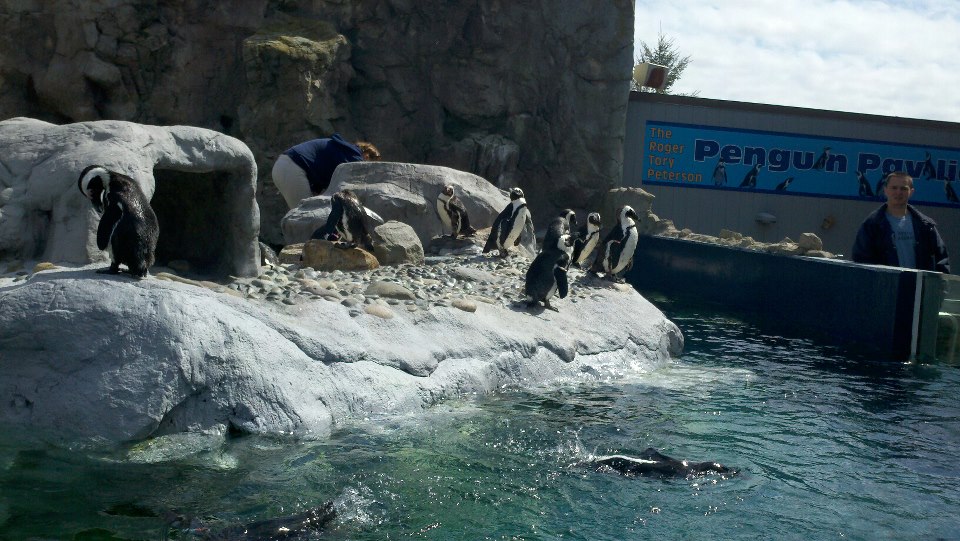

Photo Credit / Briana Magistro
BY BRIANA MAGISTRO
SC Staff Writer
I bet you thought that penguins only lived in Antarctica. Well, they can also live in Africa!
African penguins can be found in the Penguin Islands off the southern tip of Africa.
These birds are flightless, just like their Antarctic penguin cousins. For penguins, loss of flight allows them to develop excellent swimming and diving characteristics, such as a sleek silhouette and waterproof feathers.
African penguins feed on small fish and squid as they swim out to sea to hunt. Penguins can also hunt closer to shore, but the meal will be smaller.
Penguins need a high fat and protein diet. High fat content develops a warm layer of blubber, as well as produces the oils that make the penguin’s feathers waterproof. This waterproofing of the feathers is similar to that of a duck.
If you have ever seen a duck in the rain, you will notice that the water droplets roll right off its feathers, making it appear comfortable and dry.
Female penguins can lay two clutches of eggs each year. A hole or den is dug in muddy sand to house the eggs.
The parents will stick around for about a month after chicks are born to provide food and protection. The chicks will then join a colony of other chicks on the shore and wait for their parents to bring them food every day.
After a few weeks, the chicks will begin to grow adult feathers. This is called molting. Molting lasts around twenty days. After about twenty days, the chicks will have adult water-proof feathers and can now venture out into the water to forage. The chicks will stay with their generation’s colony, as did their parents.
African penguins have many natural predators, including sharks, seals, and killer whales. On land, when the penguins are still young, domestic cats, along with the mongoose and other small African predators, may prey on the chicks.
Due to the industrialization of South Africa, the African penguin now resides on the Endangered Species list. It is estimated that the penguin population has dropped by 95% within the last one hundred years.
Fisheries on the southern coast collect a lot of the fish that penguins normally eat. This causes the penguins to start eating smaller fish with less fat and proteins, making them weaker animals and more prone to their environment.
Oil rigs pass through that region more and more as the demand for oil increases. An oil spill in 2000 cut into the wildlife off the southern coast of Africa, and affected the penguin population.
Many organizations, including Baywatch, push to protect these animals.
African penguins are very common in aquariums, as they can live in more temperate climates than their Antarctic cousins. Captivity also increases the chances to preserve this wonderful bird.
Email Briana at:
bmagistro@live.esu.edu
